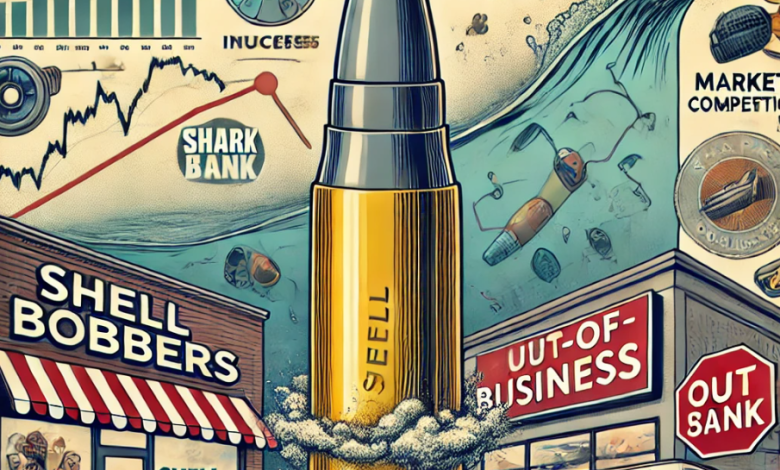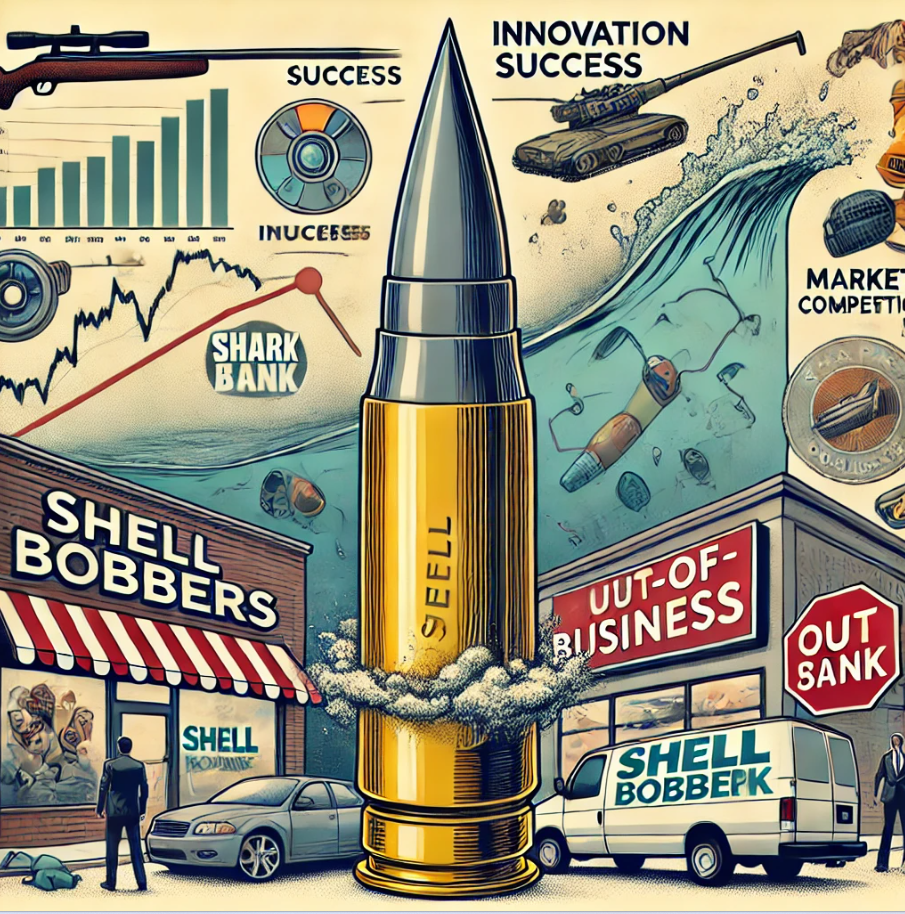What Shell Bobbers’ Retail Experiment Can Teach About Business Strategy (2024-25)

The story of Shell Bobbers, the oddball fishing item that began as a lighthearted, inventive concept, combines ingenuity, perseverance, and a hint of success in the retail industry. Entrepreneurs, particularly those stepping into specialized sectors, can learn a lot from the company’s journey from a creative idea to its appearance on Shark Tank.
Even though Shell Bobbers’ retail success was brief, the company offered a number of ideas that are still applicable today.
Idea Generation: Ingenuity and Enthusiasm
The idea behind Shell Bobbers was straightforward but original: turning spent shotgun shells into fishing bobbers. Jeff Stafford and Dusty Holloway, the company’s founders, saw a need for a product that merged hunting and fishing, so they took advantage of their passion for the outdoors and fishing. Serving a specialized market of outdoor enthusiasts who would value the product’s originality, the concept was unique.
The strength of passion and inventiveness are among the first lessons to be learned from Shell Bobbers’ story. Utilizing their individual passions, the founders developed a product that appealed to a particular demographic. This emphasizes for business owners how crucial it is to create a good or service that not only meets consumer demand but also satisfies personal interests.

Strategic Exposure: The Shark Tank Experience
After making their appearance on Shark Tank, Shell Bobbers received a lot of publicity. In addition to possible investment, the founders were able to propose their concept to a panel of experienced businesspeople, which gave them national exposure—something that many startups can only hope for. They got an investment from Mark Cuban, one of the show’s most well-known investors, after their pitch was favorably received.
The significance of strategic exposure is the second lesson. Getting your product in front of the right people is crucial for any startup. In addition to validating their concept, Shell Bobbers’ debut on Shark Tank provided them with a platform to connect with millions of potential buyers. For business owners, looking for clever ways to present their goods can make all the difference.
Managing Retail Success: Distribution and Scaling
Demand for Shell Bobbers skyrocketed after their Shark Tank appearance. 2014 was predicted to see revenues of over $1 million, which would be a major turning point for the young business. The final lesson—the difficulties of growing a business—is highlighted by this quick success in the retail sector.
It takes meticulous planning and execution to scale a product from a small business to meet widespread demand. Despite the undeniable benefits of the increased demand, logistical issues including production capacity, delivery, and product quality maintenance also arise.
The rapid rise of Shell Bobbers emphasizes how crucial it is to have a strong infrastructure in place to sustain expansion. In order to exceed client expectations without sacrificing quality, entrepreneurs need be ready for the operational responsibilities that come with growth.
The Demise: Competition and Market Saturation
Despite its early success, Shell Bobbers encountered numerous difficulties that ultimately contributed to its demise. Geeksaroundglobe has stated that the company has ceased operations. Increased competition and market saturation were two major elements that led to this result.
The market for novelty fishing products is small and susceptible to saturation, notwithstanding Shell Bobbers’ inventiveness. Furthermore, rivals that offered comparable goods at cheaper costs started to appear, making it challenging for Shell Bobbers to hold onto its market position.
The significance of ongoing innovation and market adaptability is the subject of our fourth lesson. Being ahead of the competition is essential in any industry, but it’s more important in niche markets. Entrepreneurs need to be open to constant innovation and flexibility in response to shifting market dynamics.
The Last Chapter: Sustainability and Cash Flow Management
Cash flow management was probably another important element in Shell Bobbers’ collapse. Although thrilling, rapid development can put a burden on a company’s finances. If not properly handled, the requirement for more production, marketing, and distribution may result in cash flow issues. The experience of Shell Bobbers serves as a warning about how crucial it is to keep a solid cash flow and make sure that growth is sustainable.
The significance of sustainability and financial planning is the last lesson. Managing cash flow is essential for startups to withstand the business cycle’s ups and downs. This entails budgeting for both possible sales declines and the expenses related to expansion. Building a financial cushion should be an entrepreneur’s top priority in order to keep the company afloat in trying times.
Conclusion
While Shell Bobbers’ journey ended sooner than expected, the company’s story offers timeless lessons for entrepreneurs. Success in niche markets demands a blend of creativity, strategic thinking, operational excellence, and financial prudence. By learning from these experiences, businesses can navigate the challenges of growth and competition while staying true to their vision.
FAQs :
1. What is Shell Bobbers, and what was its primary business concept?
Shell Bobbers was a retail company that produced unique fishing bobbers made from real shotgun shells, targeting outdoor and fishing enthusiasts. The novelty product aimed to stand out in the fishing accessories market by combining hunting and fishing elements.
2. How did Shell Bobbers gain initial popularity?
Shell Bobbers gained traction through a memorable appearance on the television show Shark Tank, where the founders secured an investment. This exposure brought the company into the spotlight, boosting initial sales and brand recognition in a niche market.
3. What factors contributed to Shell Bobbers’ brief retail success?
The company’s success was largely due to its innovative product, which captured attention in a highly specialized market. Additionally, the Shark Tank endorsement helped them secure distribution deals with retailers, driving initial sales momentum.
4. Why did Shell Bobbers experience challenges in sustaining long-term growth?
Shell Bobbers faced difficulties scaling beyond its niche market. Limited product diversification, high competition in the fishing accessories industry, and challenges in maintaining retail partnerships contributed to the struggle in achieving sustained growth.



